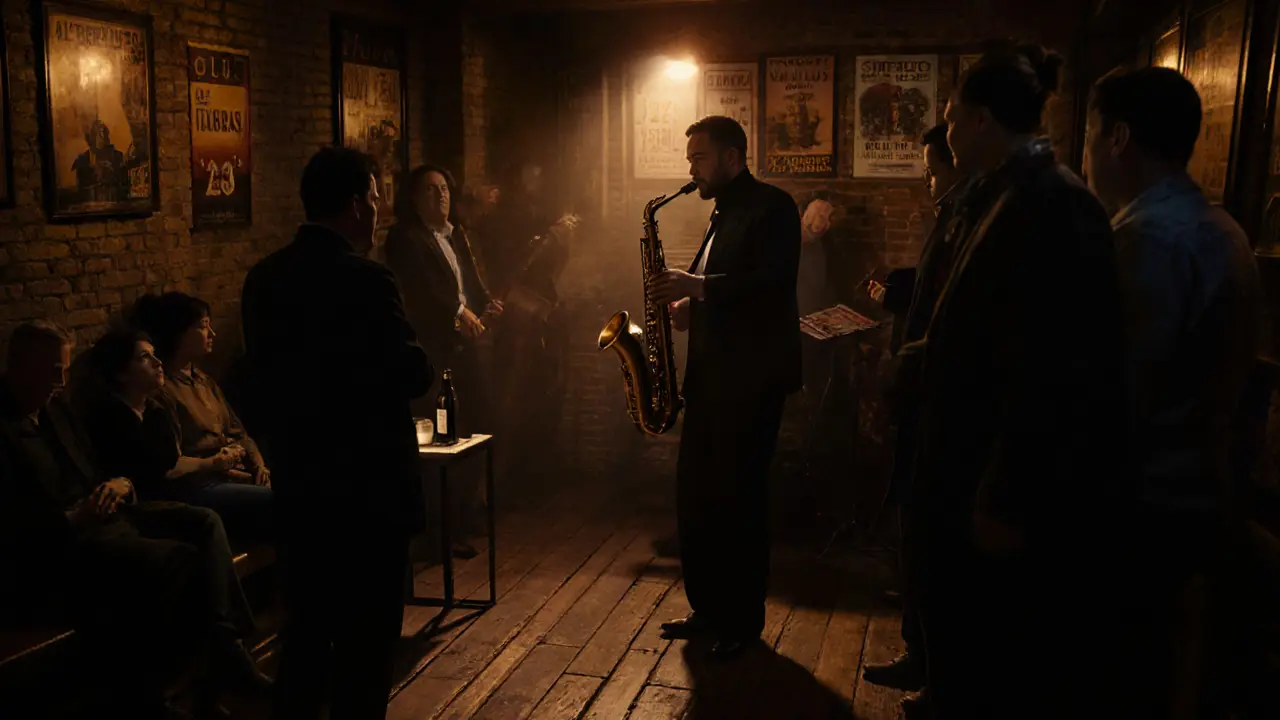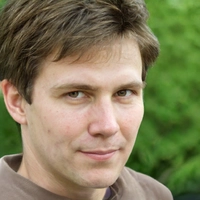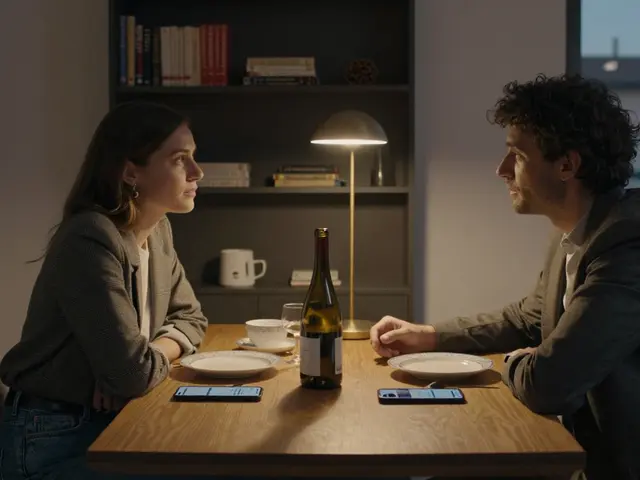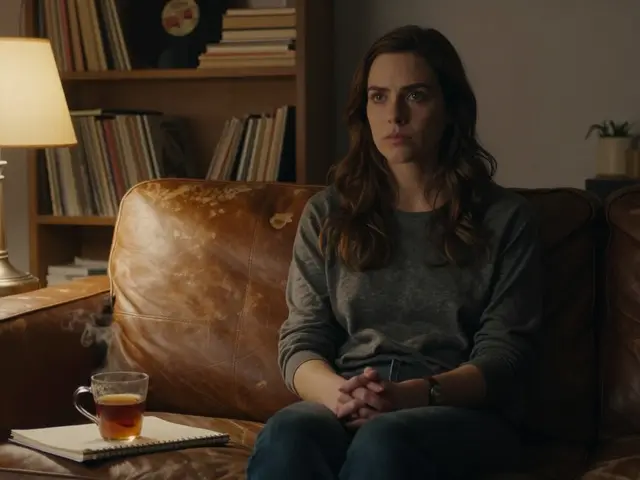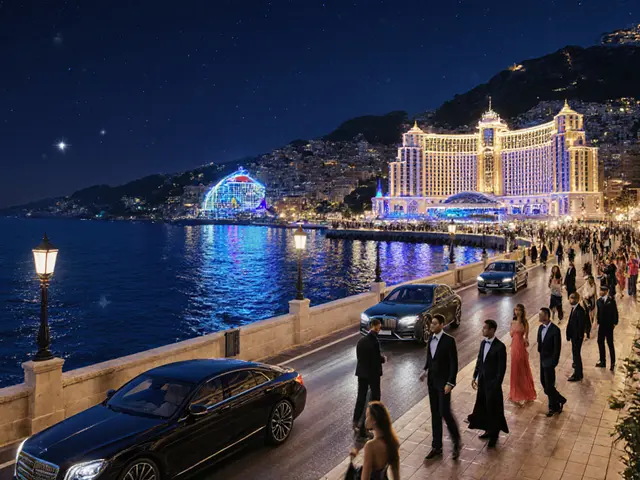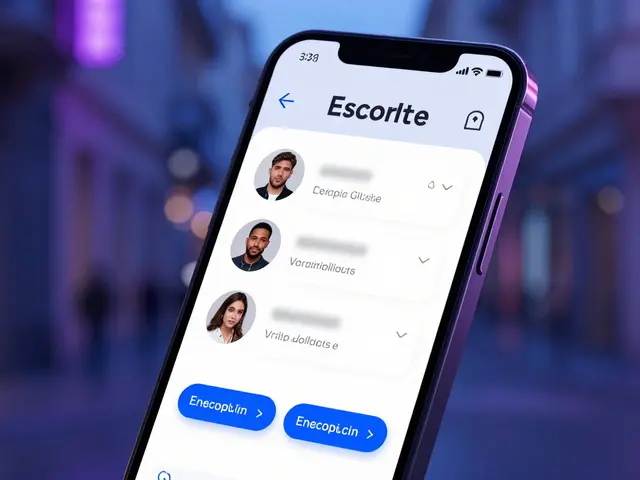Paris doesn’t sleep when the sun goes down-it wakes up. While the Eiffel Tower sparkles and the Seine reflects golden light, something else starts humming: the city’s nightlife. It’s not just about drinking or dancing. It’s about jazz in hidden cellars, wine bars where locals debate philosophy, rooftop terraces with views that steal your breath, and midnight snacks at bustling bouchons. This isn’t the Paris of postcards. This is the Paris that stays up late-and invites you to join.
Where the Locals Go (And Tourists Don’t)
If you want to feel like a Parisian after dark, skip the neon-lit bars around Montmartre and head to the 11th arrondissement. Rue Oberkampf and its side streets are where real nightlife lives. Bars like Le Comptoir Général blend vintage decor, live music, and cocktails made with French spirits you’ve never heard of. It’s not a club. It’s not a tourist trap. It’s a living room for people who love sound, stories, and slow nights.
Try Bar Hemingway at the Ritz if you want something refined. A glass of cognac here costs €25, but you’re sipping where Hemingway once sat, surrounded by marble, leather, and silence. No music. No crowds. Just the clink of ice and the murmur of well-dressed people who’ve been here before.
For something grittier, go to Le Baron in the 8th. It’s not cheap, but it’s where artists, musicians, and fashion insiders gather. The vibe changes every night-sometimes it’s electro, sometimes it’s soul, sometimes it’s just people talking over champagne. Dress well. No hoodies. No sneakers. Parisians notice.
The Jazz Scene: Where Paris Breathes
Paris has one of the world’s deepest jazz legacies. You don’t need to go to a big venue. Some of the best nights happen in tiny rooms with no sign outside. Le Caveau de la Huchette, open since 1946, is still going strong. You’ll find yourself dancing on a wooden floor while a saxophone wails over 1950s-style swing. The crowd? Mostly French. No tourists with cameras. Just people lost in the music.
Down in the 14th, Le Petit Journal Montparnasse hosts weekly jam sessions. You might see a young pianist from Senegal playing with an old French trombonist who’s been doing this since the ’70s. The drinks are cheap, the seats are hard, and the energy? Electric.
Don’t miss Sunset Sunside in the 18th. It’s a proper jazz club with a stage, a sound system that doesn’t suck, and a menu of natural wines. They host international acts-like a Brazilian drummer from Rio or a Norwegian sax player-and locals show up early to get a good seat.
Wine Bars: The New Social Hubs
Forget wine tastings in fancy chateaus. Paris’s wine scene now lives in small, dimly lit bars where the sommelier knows your name by the third visit. Le Verre Volé in the 10th is a classic. They serve 40 wines by the glass, all from small producers. No big brands. No labels you recognize. Just honest, funky, delicious bottles you’ll remember for years.
Le Baron Rouge in the 3rd is another favorite. The owner, a former sommelier, changes the list every week based on what he tasted that day. He’ll hand you a glass of orange wine from Georgia and say, “Try this. It’s like drinking a forest after rain.” You’ll either love it or hate it. Either way, you’ll talk about it.
These places don’t have menus. They have conversations. You ask, “What’s good tonight?” and they give you a story, not a description. That’s the point.
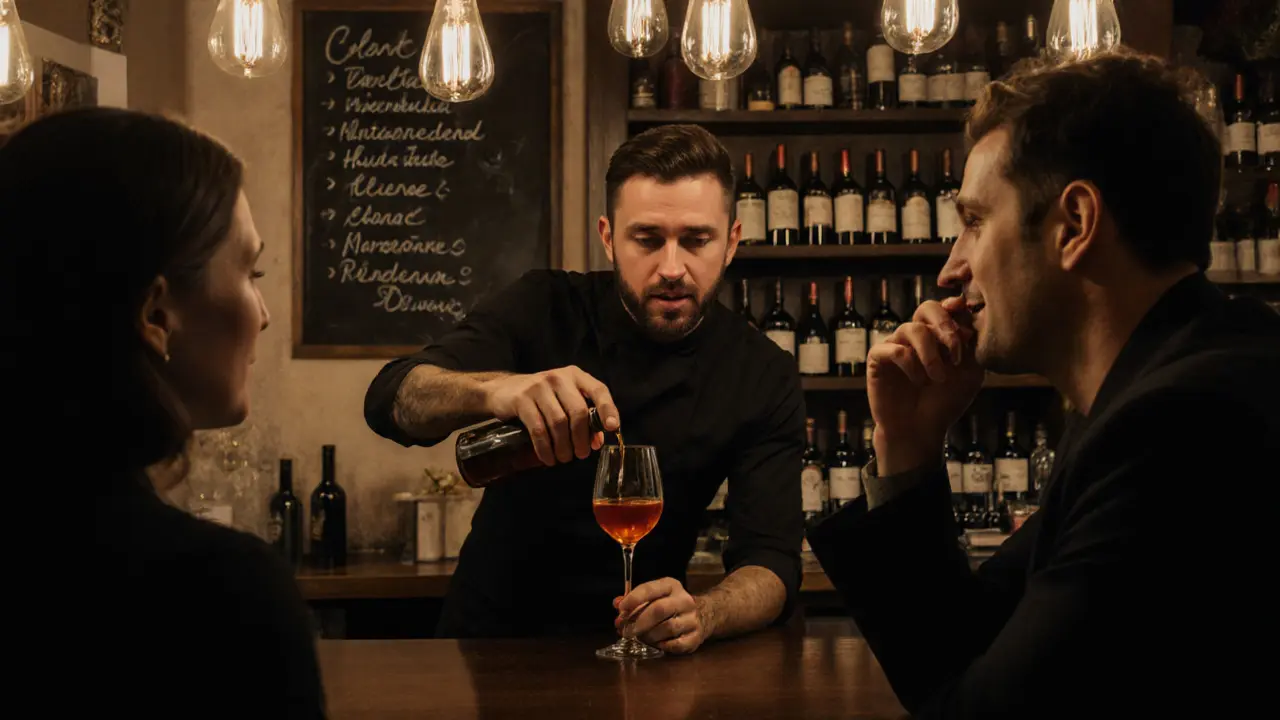
Clubs: From Underground to Elite
Paris has clubs for every mood. If you want to dance until 6 a.m., start at Concrete in the 13th. It’s in a converted concrete factory, with industrial ceilings and a sound system that shakes your ribs. The DJs are local heroes-no international stars here. Just people who’ve been spinning in basements for ten years.
For something more exclusive, Le Baron (again) or La Java in the 18th offer velvet ropes and velvet music. La Java is old-school: think 1970s disco mixed with modern house. It’s where you’ll see grandmas in sequins dancing next to twenty-somethings in black turtlenecks.
And if you’re looking for something truly wild, try Le 1000 in the 19th. It’s a warehouse party that starts at 1 a.m. and ends at dawn. No cover charge. No dress code. Just music, sweat, and strangers becoming friends by sunrise.
Midnight Eats: The Real Parisian Ritual
After dancing, drinking, or just wandering, you’ll be hungry. And Paris knows it. The city’s late-night food scene is legendary. Le Petit Pontoise on Rue de Pontoise opens at 11 p.m. and serves the best croque-monsieur in town-crispy, cheesy, with a side of fries and a glass of Beaujolais.
For something more exotic, head to Chez L’Ami Jean in the 7th. They serve Basque-style stews and grilled meats until 2 a.m. The staff doesn’t rush you. They bring you a digestif if you look tired.
And if you’re feeling adventurous, find a crêperie in Montparnasse. The ones that stay open past midnight make sweet crêpes with salted caramel and savory ones with ham and gruyère. You eat them standing up, wrapped in paper, while the city hums around you.
What to Avoid
Not every bar in Paris is worth your time. Stay away from the fake “French bistros” near Notre-Dame that serve pre-made escargot and charge €18 for a glass of wine that tastes like vinegar. These places exist for tourists who don’t know better.
Also, don’t expect 24-hour service. Most places close by 2 a.m. on weekdays. Weekends stretch to 4 a.m., but even then, the city quiets down fast. Parisians don’t party until dawn every night. They savor it.
And never, ever try to haggle over drinks. That’s not how it works here. A €12 cocktail isn’t expensive-it’s an investment in the moment.
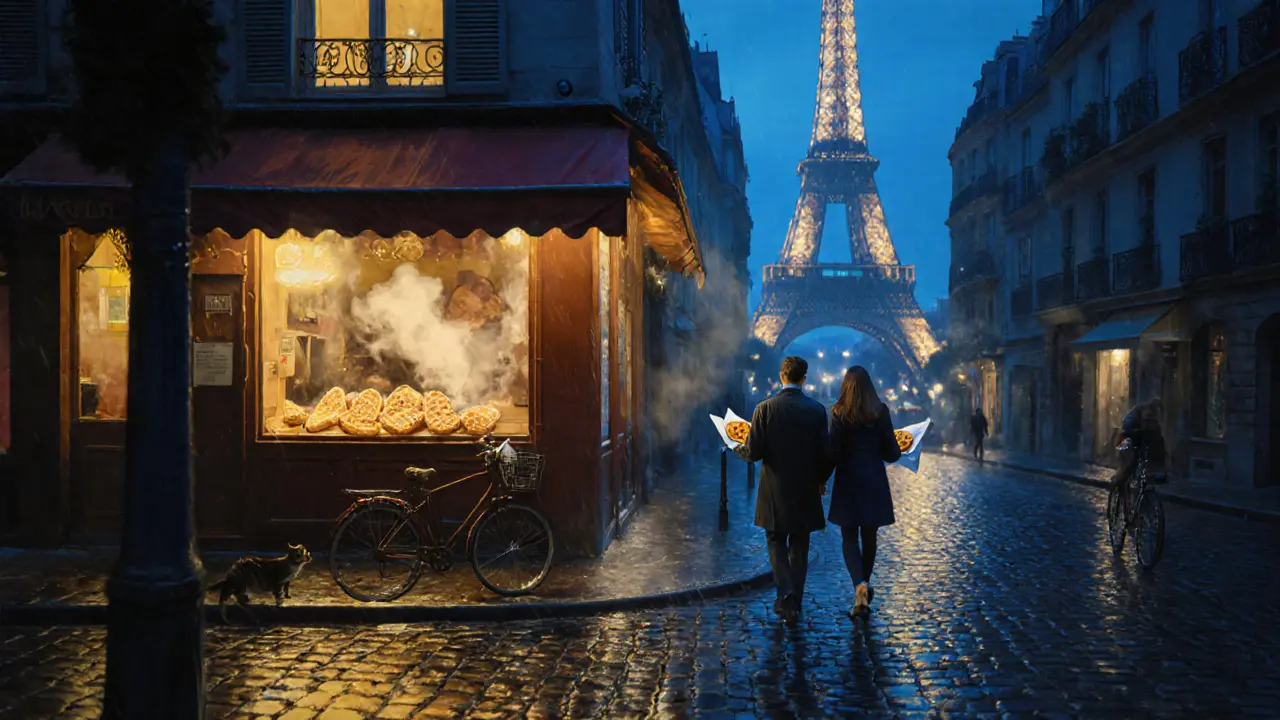
When to Go
Summer nights are long, and the city feels alive. July and August are magical-terraces overflow, open-air cinemas pop up, and the riverbanks turn into dance floors. But fall? That’s when Paris gets intimate. The air cools. The lights glow warmer. The crowds thin. And the real magic begins.
October through March is the best time to find hidden gems. Locals are home. Bars are quieter. The music is louder. You’ll have better conversations. Better drinks. Better memories.
How to Get Around
The metro runs until 1:15 a.m. on weekdays, and 2:15 a.m. on weekends. After that, you’ll need a taxi or Uber. But here’s a tip: walk. Paris is small enough that you can wander from one bar to the next in 20 minutes. The streets are safe. The lights are soft. And the city looks different at night-like a painting you didn’t notice before.
Don’t rent a car. Parking is a nightmare. And you’ll want to be alert when you’re tasting wine or dancing to jazz. Stay sober enough to enjoy it.
Final Tip: Slow Down
Paris after dark isn’t about checking off clubs or taking selfies with the Eiffel Tower. It’s about lingering. About letting a conversation stretch past midnight. About tasting a wine you’ve never tried and asking, “What’s this?” And letting someone tell you.
The best nights here don’t end with a bang. They end with a whisper-a quiet walk home, the smell of rain on cobblestones, and the quiet hum of a city that knows how to live.
Is Paris nightlife safe at night?
Yes, most areas popular with nightlife-like Le Marais, Saint-Germain, and the 11th arrondissement-are very safe after dark. Stick to well-lit streets, avoid isolated alleys, and don’t flash valuables. Pickpockets exist, but violent crime is rare. The metro runs late, and taxis are easy to find. Use common sense, and you’ll be fine.
Do I need to speak French to enjoy Paris nightlife?
Not at all. Most bartenders and club staff speak English, especially in tourist-heavy areas. But making an effort-saying "Bonjour," "Merci," or "Un verre de vin, s’il vous plaît"-goes a long way. Locals appreciate it. And in quieter, local spots, a little French opens doors you didn’t even know were closed.
What’s the dress code for Paris nightclubs?
It varies. For rooftop bars and upscale lounges like Le Baron, smart casual is expected: no sneakers, no hoodies, no shorts. For underground clubs like Concrete or Le 1000, jeans and a clean shirt are fine. The rule? Look intentional. Parisians notice if you’re trying too hard-or not at all. When in doubt, dress like you’re going to dinner, not the gym.
Are there any free nightlife events in Paris?
Yes. Many jazz clubs host free jam sessions on Tuesdays or Wednesdays. Open-air cinema screenings in parks like Parc de la Villette are free in summer. Some wine bars offer free tastings on slow nights. Check local listings on sites like Pariscope or Time Out Paris. The best free events are the ones you hear about from locals-not the ones advertised online.
What time do Parisians usually start their night out?
Most Parisians don’t head out until 10 p.m. or later. Dinner starts at 8:30 p.m., and drinks come after. Bars fill up around 11 p.m. Clubs don’t get busy until midnight. If you show up at 9 p.m., you’ll be one of the only people there. Patience is part of the rhythm.
